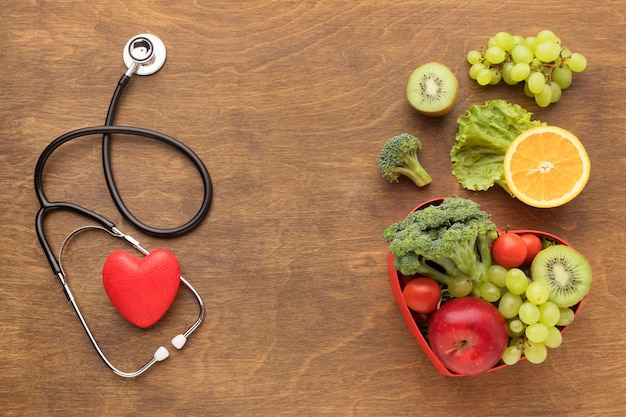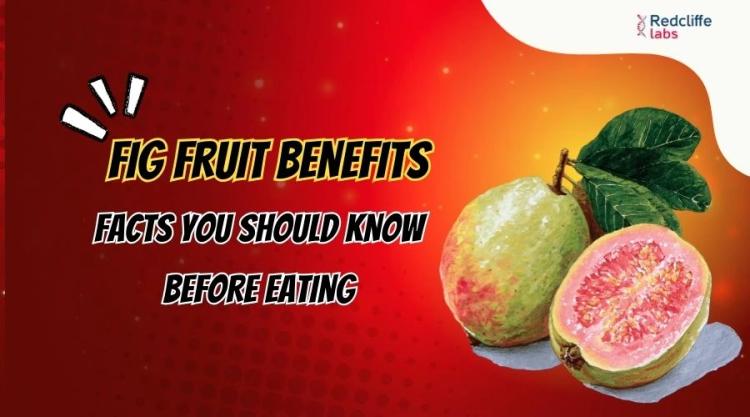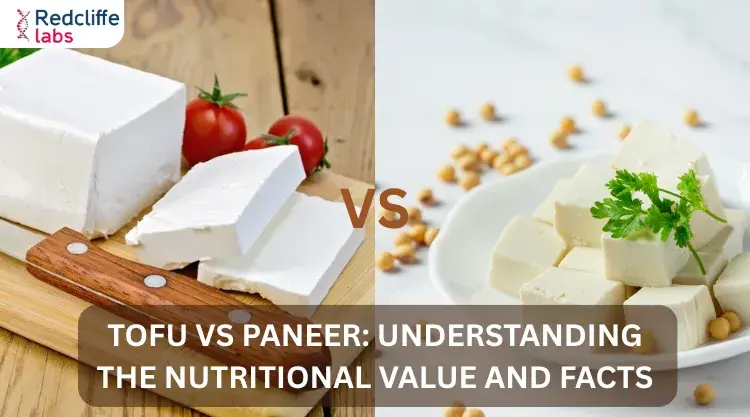Heart-Healthy Food: 10+ foods that improve your cardiac health

Medically Reviewed By
Dr Divya Rohra
Written By Dr. Ragiinii Sharma
on Mar 17, 2022
Last Edit Made By Dr. Ragiinii Sharma
on Jan 10, 2025

Your diet and your heart health are closely knit. Given that cardiovascular diseases account for the leading cause of death globally, what you put into your mouth makes a lot of difference.
Did you know that a diet rich in bad fats and high sodium can lead to increased risk of heart diseases? Leave aside the risks of genetic predisposition and a sedentary lifestyle; your diet influences the risks of heart diseases the most.
If you want to savor your life to the best, the following are the most heart-healthy foods that can transform your health for the better.
How does Diet Affect Heart Health?
Our heart is one of the most essential organs in the body. From pumping blood to maintaining the correct flow of it, the heart indulges in many crucial tasks in the body.
So, supplementing it with the right kind of diet is important too.
For years, the research connecting diet and heart disease only focused on unhealthy fats and cholesterol. However, more recent studies indicate that eating a low-sodium and high potassium diet can improve cardiovascular health.
List of Top Heart-Healthy Foods
When choosing food suitable for the heart, there are different groups and categories to look into. One just can’t expect to eat vegetables and think it will compensate for your daily dietary needs. Similarly, you can’t live off fast food and expect your heart to function optimally.
Following are the best heart-healthy foods you should add to your diet:
1. Leafy green vegetables
Spinach and kale pushing aside on your plate can augment your heart health. Not only are they rich in antioxidants, but they are also enriched with minerals and vitamins too. Green leafy vegetables are also a direct source of Vitamin K, a crucial vitamin that helps with blood clotting and protects your vascular health. An underrated compound, nitrates, is also abundantly present in the leafy greens, further adding to heart health benefits. Healthy greens like spinach, kale, and collard greens are also enriched with Vitamin B, having cardiovascular protective properties.
2. Berries
When it comes to the best fruits for the heart, berries top the list. Not only do you get to choose from a variety of them, but all of them are enriched with antioxidants, which improve heart health. The active antioxidant in berries, anthocyanin, directly acts on free radical damage and inflammation in the body. When eaten in controlled amounts, berries can also reduce the incidence of insulin resistance and the levels of bad cholesterol in the body. The regulation of both these factors has beneficial impacts on heart health.
3. Whole grains
If refined grains are bad for your heart, whole grains have the opposite impact. Studies suggest that replacing refined grains with whole grains can reduce the incidence of heart diseases by 20%. Whole grains are enriched with healthy fats and directly correlate with optimal blood pressure and cholesterol levels in the body.
4. Fish
Fish like salmon and mackerel are not just popular for their taste but stand out because of the high amounts of healthy fats. The omega-3 fatty acids have extensive cardio-protective benefits, and they are found in abundance in fatty fish. Studies also indicate that eating a fish-dominant diet has reduced risks of high cholesterol, clots in the arteries, and other heart diseases. However, we understand that relying on fish for omega-3 isn’t for every person. In that case, fish oil makes a good alternative. Krill oil and algal oil are also good alternatives in that case.
5. Nuts
Healthy and balanced consumption of nuts like walnuts and almonds can boost your heart health profoundly. Tree nuts have proven benefits in supporting superior cardiovascular function over time. Even a study recorded that the subjects who consumed walnuts as part of their daily diet reduced cholesterol and low-density lipoprotein levels in the bloodstream. The higher levels of both compounds are connected with the risks of heart diseases.
6. Dark Chocolate
Dark chocolate, especially those with up to 80-90% cocoa, has significant benefits in improving your overall heart health. Given that cocoa, the main ingredient that makes up chocolate, is rich in antioxidants, consuming them now and then impacts the heart function for the better. Besides heart diseases, moderate consumption of dark chocolate also reduces the risks of strokes and diabetes. Remember that the store-bought dark chocolates marketed as 50-60% cocoa have a high level of sugar. Stick to eating the solid dark chocolate variants, especially the ones with up to 90% cocoa in them.
7. Tomatoes
Lycopene, an active ingredient in tomatoes, has high antioxidant levels. Not only do they reduce risks of free radical damage, but they also reduce inflammation, both of which are vital contributors to heart disease. Adding a moderate amount of tomato to the diet can reduce higher levels of blood lipids and regulate blood pressure in hypertensive patients. Besides lycopene, tomatoes also have potassium, which contributes to improved heart health and functioning. You can also find flavonoids like Vitamin B and E, both of which improve heart health.
8. Seeds
Much like nuts, even seeds have beneficial contributions to heart health. However, not every seed has similar benefits. Seeds like chia seeds, flax seeds, and hemp seeds are enriched with omega-3 fatty acids in them, which improve heart health. Substituting unhealthy fats with healthier fats from seeds has proven benefits in reducing oxidative stress and inflammation in the body. It also keeps arterial health and blood flow in check, reducing risks of atherosclerosis in patients.
9. Olive oil
Olive oil is a much healthier alternative compared to neutral oils like vegetable oil, canola oil, or sunflower oil. Besides having less conjugated fatty acids, olive oil is extracted after cold-pressing olives, enriched with antioxidants. Switching regular cooking oil with olive oil also reduces inflammation in the body. Studies have found that olive oil can significantly reduce the risks of heart diseases by 48%. Although a few new studies indicate that consumption of olive oil can reverse heart failure, the reports are not conclusive and need more data.
10. Garlic
Garlic is hands down one of the best aromatics that you can add to your food. However, besides its potent medicinal properties, the active ingredient in garlic, Allicin, has effective antioxidative properties. Besides reducing free radical damage and inflammation, consuming garlic is also linked with reducing platelet build-up in the bloodstream. Garlic can prevent blood clots and reduce the complaints of high blood pressure in the patients.
11. Green tea
When talking about heart-healthy foods, there was no way we could miss out on green tea. The consumption of green tea dates back to centuries and has helped individuals improve their overall health. The polyphenols and catechins in green tea are two of the most potent antioxidants, both of which reduce oxidative stress and inflammation in the body, thereby keeping your heart healthy.
Consuming green tea is also related to active weight loss in obese patients, thereby improving heart activity and functions. A study also found that consuming green tea significantly reduces LDL levels in the bloodstream, preventing risks of blood clots and blockages in the arteries.
Conclusion
The correlation between diet and heart health is indispensable. If you are at risk of developing heart diseases due to genetics or your lifestyle, take control of your choices now. A simple switch from an unhealthy diet to a balanced and nutritious one can make many differences.
Switching to a diet with heart-healthy foods will not just regulate your blood pressure and reduce the risks of inflammation and high cholesterol levels. Make the right choices before your diet takes a toll on your cardiovascular health.




